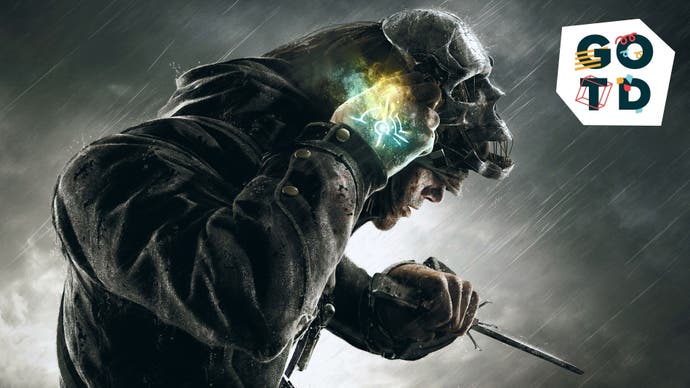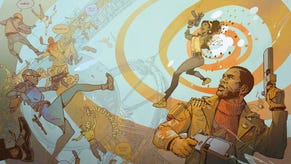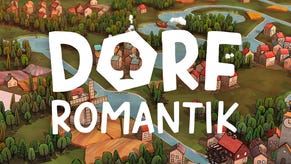Games of the Decade: Dishonored taught me there is no right way to play
Outsider art.
To mark the end of the 2010s, we're celebrating 30 games that defined the last 10 years. You can find all the articles as they're published in the Games of the Decade archive, and read about the thinking behind it in an editor's blog.
The city of Dunwall is a paradox. As the pounding of inhuman footfalls echoes against the bruised sky, rodents of all sizes and colours scurry, silently coating the cobbles with death and disease. It's a life of extremes, this. Pomp and poverty. Science and superstition. The haves and have-nots. Ladies whisper and giggle in lavish dining halls, heavy silk drapes pulled tightly to hide the emaciated husks of citizens lying, and dying, beyond the manicured lawn.
Games often touch us not only because of what they are, but what they're not and, for me, Dishonored was a game that relaxed traditional gameplay in a way I hadn't quite anticipated. It unshackled expectations, permitting me to explore Dunwall's battered, broken environs at my own pace and in my own style.
While by no means the originator of the play your own way premise, Dishonored's elasticity showed me - taught me - that there was no one "correct" way to do anything in this world. It doesn't matter if you suck at stealth or panic in close-quarters combat; there are numerous ways to progress through each and every level and as such, it's astonishingly liberating. Is the lobby protected by a gaggle of Overseers? Turn your eyes skyward and maybe you'll find an open veranda. Struggling to get past a Tallboy patrol without being spotted? A midnight dip alongside a whaling ship in the Wrenhaven river could see you slither by unseen. And because there is no single "real" solution here, exploration - not to mention experimentation - is its own reward.
Consequently, Dishonored delivers some of the most remarkable level design we've ever seen, as well as some of the most versatile. It taught me the value of the open window as well as a hidden doorway and instilled a thirst for exploration that I've not been able to shake since. Secreted throughout Dunwall are deliciously layered environments that excel at visual storytelling, and though I frequently lament I don't have enough time for The Next Big Game and everything else I need (read: want) to play, I find myself returning to life within these dank city walls with dizzying regularity... and still, many years later, every playthrough is distinct from the last.
Dunwall is as much a character in Arkane's Dishonored as disgraced Corvo himself, too. Though sickly with corruption and greed, it'll give up its secrets readily enough if you're prepared to work at it a little. For every clue you stumble across on the beaten path, there are five more yet to be discovered and the more you explore, the more there is to learn. It's a journey to be savoured, too; for all its death and disease, Dunwall is a broken but curiously beautiful backdrop, a world that defies conventional charm and yet manages to captivate all the same.
Taken individually, Dishonored's unique art style, brooding setpieces, engaging story, and innovative design are enticing enough. Woven together, however, Arkane delivers one of the most distinctive, engrossing titles I've played in years.


















